Rebuilding and Repairing Relationships After Addiction
Get Help Now
Rebuilding and repairing relationships after addiction is one of the most important steps you can take toward recovery. Not only is it a way to address any lingering shame or guilt you may feel for the way you’ve treated those around you, but it is also going to help you strengthen your support system so that you have people to turn to if you need help maintaining your sobriety in the future. Both you and the people around you will benefit from the work put into fixing your relationships. This is why quality detox programs in Florida also address interpersonal relationships, sometimes through discussions in group therapy or even specialized family therapy. Through conversations with your therapist, peers, and loved ones, you will understand how your addiction has affected the people around you and how you can make amends for it.
The impact of addiction on relationships
Addiction is a chronic illness that affects your behavior and personality. As such, it impacts how you interact with the people around you – people you care about and total strangers. As your dependence on substances worsens, you’ll prioritize drugs and alcohol more and more. At best, this will cause you to neglect your relationships; at worst, you may actively harm those close to you. Acknowledging the ways in which addiction has negatively impacted your relationships will be the first step toward healing those relationships.
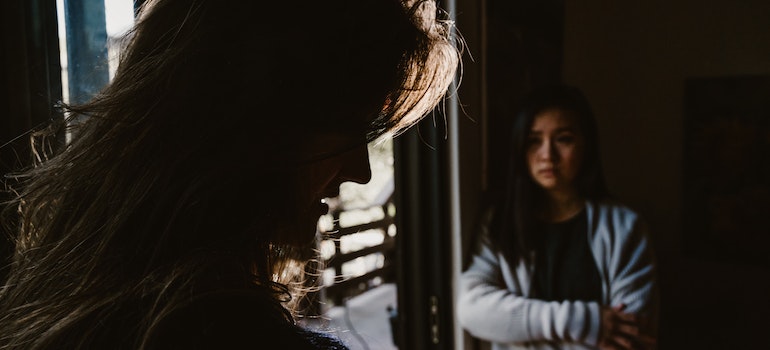
Secrecy, lies, and trust issues
The stigma that comes with addiction causes many people to feel like their use of substances is shameful and wrong. Some people may struggle to admit that they’ve developed an addiction – even to themselves. Those in denial about their condition will, therefore, hide the problem from their family without even realizing it. Unfortunately, this makes it more difficult for loved ones to intervene and help, especially in the case of addiction to prescription medication because if family notices someone using cocaine, they’ll always assume the person needs help; simply taking painkillers isn’t necessarily a sign that someone needs treatment at an opioid detox center Florida, so the denial continues.
Of course, even the people who know their substance use has gotten out of control will often hide this. They want to keep face and spare their loved ones the same guilt and shame they feel; or they may fear their family will try to prevent them from using drugs and alcohol and don’t want to risk that. If illegal substances are involved, addicts may also hide their condition in order to avoid getting their loved ones into legal trouble.
Even when the intention behind it is good, secrecy and lying will ultimately harm any relationship. The truth will eventually come out and the longer you try to suppress it, the worse it will be when it does. Your loved ones will likely lose the ability to trust you, not just about substance use but about other things, as well. During and even after recovery, they may not believe you’ve stopped using because you’ve lied about the same things before. Those closest to you may even feel guilt over not noticing your addiction sooner. All of this will negatively impact your relationship.
Financial and legal burdens
Substance abuse is expensive. It may not start out that way, especially if your addiction is to something relatively affordable. But your expenses will grow with your appetite. Whatever you’re using, you’ll find yourself buying more and more of. The problem is even worse if you’re getting drugs illegally: your dealer is aware that you’ll pay anything to get their product so they can put any price they want on it.
To make matters worse, addiction often interferes with your ability to make and save money. You may struggle to keep up with work or lose your job altogether; if you’re dependent on a family member, they may cut you off in an attempt to force you to quit. With less money coming in, you’ll quickly fall into debt and start dipping into savings or selling valuables to keep up with your cravings. If you’re truly desperate, you may even resort to stealing and crime to support your habit. And when you do decide to seek help, you may find that you need money for treatment too. While drug rehab Lantana is worth the expense, it is often not cheap and you may struggle to afford it without some sort of financial aid.
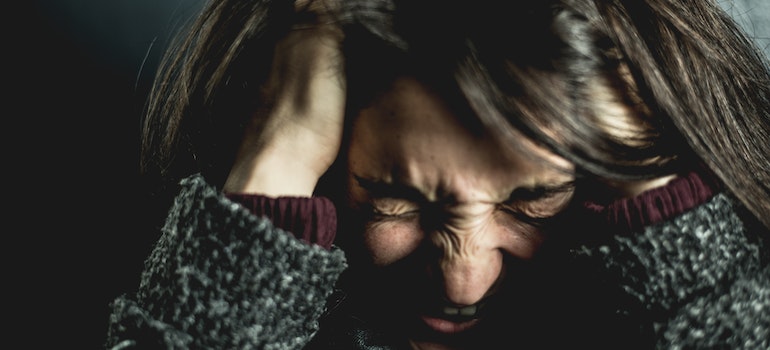
Family and friends who try to help may end up in the same situation as you. If you start selling shared property, you’ll also be hurting your loved ones. The same is true if you steal from them. Even if they offer to help you, it’ll still cost them hundreds, even thousands of dollars to support you. If your activities are illegal AND harmful, your family members may be accused of participation and end up in court themselves. For some family members, this line cannot be uncrossed.
Personality changes, abuse, and violence
It’s important to note that addiction won’t necessarily make you violent. Substance abuse is, therefore, not an excuse for abuse. However, there is an overlap between substance abuse and abusive relationships. Addiction correlates with abuse: addicts are more likely than the average person to be in abusive relationships, both as the abuser and as the victim. There are three primary reasons for this:
- Your inhibitions are lower when under the influence. You may say things you otherwise wouldn’t, feel emotions more strongly, and struggle to control your impulses. If you’re already prone to anger, this can exacerbate the issue. Over time, the effects of the substances you’re using may become permanent due to changes in brain chemistry.
- People often turn to substances to deal with unpleasant situations. So if you are a victim of abuse, you may start to numb the pain with alcohol or drugs, and if you are abusive toward a partner or a child, guilt may drive you to do the same.
- The criminal aspect of drug abuse may land you in violent situations. If you obtain drugs illegally, if you start dealing drugs, and even if you just spend a lot of time around other addicts who are involved in the criminal drug trade, you may find yourself around violence and abuse quite often. Over time, this can normalize such behavior.
Enabling and codependency
Addiction can also cause arguably the opposite of a breakdown in a relationship: it can cause the bond between two people to become unhealthily close. In an effort to be understanding and helpful, your loved ones may start to enable your drug abuse, excuse your behavior, or even help you obtain and use substances. They’ll reason that it’s a way to keep you functioning and happy and therefore the best for you. If they do want to help you quit, they may do so by supporting you in weaning off substances at home with them. However, this is actually the opposite of beneficial to you as medical detox Florida is always the safer option.
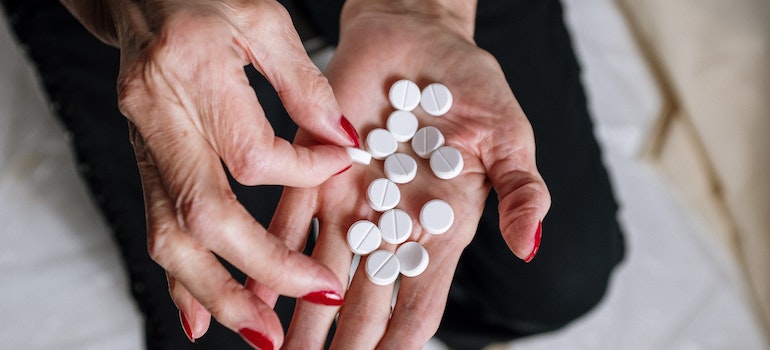
Over time, relationships like this can turn into codependency. You may struggle to function without the constant reassurance and support from a loved one you’ve become codependent with and they may in turn object to your treatment if it means you’ll be separated. Such relationships are ultimately unhealthy for both parties. So while you should seek help from loved ones, you should also accept that sometimes that help comes in the form of tough love instead of unconditional support.
Working on relationships after addiction
Relationships affected by addiction are forever changed. But they don’t necessarily have to end or change for the worse. You still have family and friends who love you and want you in their lives. If you feel the same way about them, you need to show them that you are dedicated to your relationship by working to heal the hurt and improve communication.
Why is it important to rebuild certain relationships after addiction?
Addiction tends to isolate you, making it more difficult for you to reach out to someone and for others to offer help. But once you’re in recovery, you can undo the damage by rebuilding the relationships you’ve pulled away from. Recovery from addiction is a difficult road to walk alone. Not only will you want to have someone to rely on while you are in drug or alcohol rehab Lantana, but you’ll also want to have someone to turn to once you’re left to your own devices after treatment.
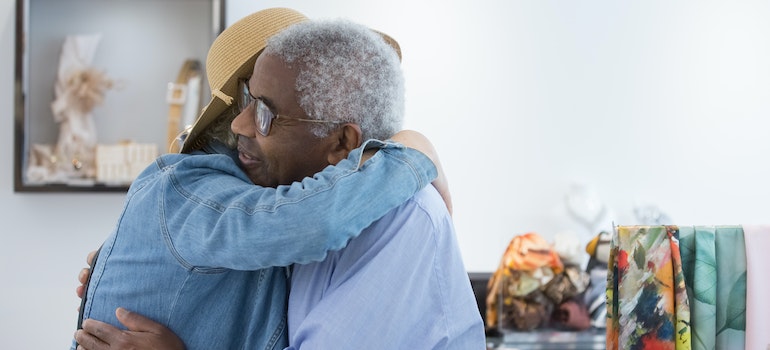
Research has shown that support systems make a big difference in successful recovery from addiction. Loved ones represent positive peer pressure and inspiration to leave substance abuse behind. They also provide emotional support during hard times and can be the difference between maintaining sobriety and relapsing. Having people to turn to when you’re struggling is crucial for long-term recovery from addiction.
Which relationships should you try to repair?
Not every relationship in your life can or even should be salvaged after addiction. In fact, one of the most important things you should do when working on your relationships post-addiction is to cut out the toxic people that negatively affect you and your life. So when deciding who to reach out to, skip the people who might put your recovery at risk. This will include all the obvious usual suspects like dealers. But it may also include friends still in the clutches of addiction and refusing to seek help. It may even include family members who are a bad influence.
It will be much more complex but equally important to let go of the relationships that have been damaged beyond repair. This doesn’t mean giving up before you even start; you should still reach out to everyone who’s important to you, apologize for the wrong you may have done, and offer to work on rebuilding the relationship. But if the person on the other end of the line cannot move past your addiction, you’ll have to respect their choice. It’s a part of recovery to accept that some things have changed for good because of your substance abuse.
When should you start working on rebuilding your relationships after addiction?
The best time to reach out to loved ones is right now because the sooner you take that first step the better. Treatment programs that offer family therapy do so early in the process for a good reason. Even if you don’t participate in family therapy yourself, you’ll want to follow in their footsteps and start working on rebuilding your relationships already while you are in an inpatient drug detox center in Florida. That way you can get help making amends from professionals and peers by bringing up the topic in addiction therapy.

There are two major reasons to start working on your interpersonal relationships early in recovery. Firstly, you benefit from having a strong support system. Support from loved ones will make your recovery faster, better, and long-lasting. When the time comes for it, you’ll also have someone to go to after rehab. Secondly, repairing bonds damaged by addiction can take a long time. Trust is difficult to regain when you have a history of substance abuse. In fact, it may take years for your relationships to once again become as strong as they were before addiction. But the sooner you start the healing process, the sooner you can have a good relationship with your loved ones again.
How can you best improve your relationships after addiction?
The healing process is different for everyone. By extension, it’s also different for every relationship. Some people will forgive you quickly while others will take months to let you back into their lives. Some of your relationships will benefit from time spent together while others will require some time apart. There is no magical formula that works every time. You’ll have to approach each relationship individually.
One thing you should consider, at least for the most important relationships in your life, is going to therapy with your partner or close family members. That way, you’ll have professional help in figuring out your issues. Under a counselor’s guidance, you and your loved ones can learn how to communicate better, help and support each other, and grow into better people together. But even if your loved ones do not want to participate in some form of couples or family counseling, you can still discuss your relationships with your therapist. Then, use the advice you get from them in your relationships.
Steps to take when repairing relationships after addiction
While every relationship will follow a different path, there are certain things you can do that will always be a step in the right direction – reaching out, apologizing, and communicating in a healthy way. The specifics of how you take these steps will depend on you and the person you’re talking to. But as a general rule, you should:
Set realistic expectations
If you step into the process of repairing broken relationships after addiction with unrealistic expectations, you’re setting yourself up for failure and disappointment. Things won’t go back to how they were before overnight, if ever. Even if you reach out to loved ones before you enter cocaine withdrawal treatment, some of your relationships won’t heal until well after rehab. This is something you simply have to accept. Otherwise, you might get discouraged and give up.
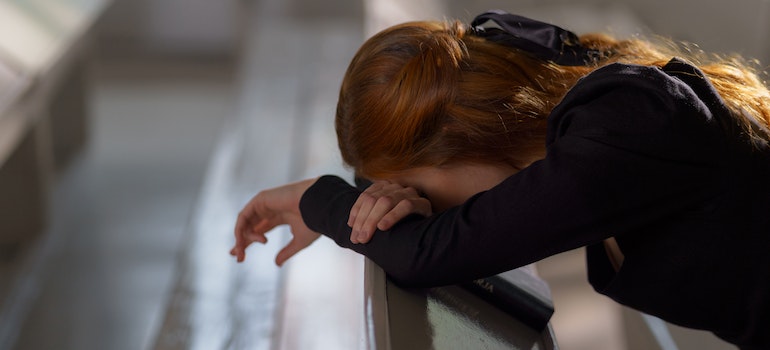
There are a few hard-to-swallow pills that you’ll simply have to take. Firstly, not all relationships can recover from the damage done by addiction. Some people you will lose no matter how hard you try. Secondly, fixing a broken relationship takes a lot of time and effort. Both you and your loved ones will have to commit to serious work if you wish to repair your bond. Finally, things will never be the same. You won’t erase your past, no matter how hard you try. Instead of aiming to go back to how things were before your substance abuse took over, learn how to have a strong and healthy relationship in this new post-addiction reality.
Be patient and persistent
For most people, addiction is a life-long struggle. No, heroin detox Florida doesn’t last forever, and yes, you’ll achieve sobriety. Nevertheless, substances can permanently alter your brain chemistry and personality. Once you’ve developed substance abuse disorder, you’ll always be at a higher risk of addiction than the average person. This continuous struggle with addiction will inevitably have a long-term effect on your relationships. Your loved ones may find it difficult to trust you or may, conversely, become overprotective of you when it comes to the use of controlled substances. It will take time to learn to navigate these obstacles in a relationship.
Remember that your loved ones are worth the effort. So take your time and keep trying. If your parents don’t answer your first phone call, reach out again tomorrow. If your partner doesn’t accept your apologies, try a different approach and make a gesture instead. Through trial and error, you can find a way forward. But it’s a marathon, not a sprint – just take your time and keep moving forward, even if progress is incremental.
Make amends for past mistakes
One of the first and most important things you’ll need to do when trying to repair relationships after addiction is to admit your mistakes and try to make up for them. Unfortunately, this is also one of the hardest things to do. Many people find it difficult to own up to the wrongs they’ve done; those who acknowledge their mistakes may struggle with finding ways to undo the harm they’ve caused. So here’s what most people are looking for you to do:
- Own up to your past. Don’t make excuses for your addiction or the things you did during your addiction. Instead, take responsibility for what you’ve done.
- Acknowledge how your actions have affected those around you. Even if you didn’t mean to or didn’t want you, you’ve hurt the people who care about you the most. Now, it’s time to put them first and apologize for what you’ve put them through.
- Make a clear effort to avoid repeating the same mistakes. You cannot undo what’s in the past. But you can make sure it doesn’t happen again.
- Ask what you can do better in the future. No matter how well you know someone, you can’t read their mind. So ask your loved ones what they need from you in order to move on. This will save you both a lot of time and frustration in the long run.
Reach out first
Relationships are always a two-way street, but people are not always traveling in both directions at equal speeds. Sometimes, most of the work being put into the relationships falls on one person for a while, and that’s okay. The problem is that your loved ones probably did most of the emotional labor during your addiction. And that is a lot of work over a long period of time. So it would be unfair to expect them to also be the ones putting in all the effort when it comes to healing.

It is, instead, your turn to take on the hard work. This means being the one to take the first step toward healing your relationships after addiction. Reach out to the people in your life who matter. Talk to them about your addiction struggles, your recovery plans, and how they fit into that process. Apologize for your mistakes and promise to do better in the future. Extending the olive branch like this is a sign of maturity that will go a long way toward showing your loved ones that you’ve changed. It won’t necessarily fix things, but it will set the tone for the future.
Learn to communicate better
Breakdowns in communication are one of the most common issues in any relationship. Addiction exacerbates this problem. You start keeping secrets and neglecting your loved ones; they, in turn, don’t know how to help you, which can cause them a lot of frustration and even guilt. If both parties can learn how to communicate better, such problems can be avoided in the future. But what does it mean to communicate in a healthy way?
- Be honest. Secrets and lies have no place in a healthy relationship. This doesn’t mean you have to share absolutely everything with absolutely everyone – there’s a time and a place for everything and you still should have some privacy – but if you’re keeping something from your loved ones, that’s a bad sign.
- Listen. You’re not the only one with things to share. Your loved ones deserve to be heard as well. So pay attention to what they’re saying – not just what you’re interpreting, but what they actually mean. Give them the benefit of the doubt instead of jumping to the worst possible conclusion and ask for clarification if needed.
- Avoid becoming too self-absorbed. It is important to make yourself understood in a conversation. But it’s equally important to understand the other party. So try to see things from their perspective too.
- It’s not a competition. Stop trying to win conversations. It’s about working together against addiction, not fighting a war with each other.
- Learn your respective communication styles. People communicate in different ways. Some are very verbal and blunt while others show more through actions. Talk to your loved ones about the ways they share their truths so that you can pay better attention to what they’re trying to say.
Eliminate toxic relationships
Healthy, loving, and supportive relationships are worth the work that goes into them. But toxic relationships need to go. They don’t just contribute nothing; they actively threaten your recovery. Any time and energy you invest in them are wasted when it could’ve gone toward better things instead. Furthermore, toxic relationships can cause stress, anxiety, and other mental health problems. These are some of the biggest risk factors for relapse.
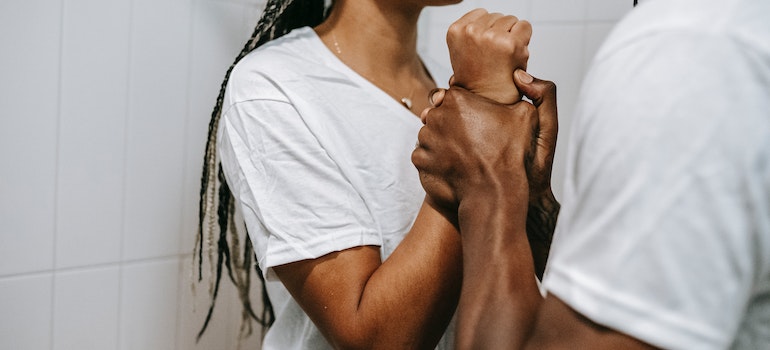
Keep in mind that toxic relationships are not necessarily physically, mentally, or emotionally abusive. They can take on many forms. Sometimes, it’s a codependent partner who refuses to go into marijuana detox Florida and is instead asking you to smoke with them. Other times, it’s an overbearing parent who enables your substance use and makes excuses when you don’t work on your recovery. They can even be friends you keep around even though you’re always arguing. Don’t fall into the trap of feeling like you need to stick with a dysfunctional relationship just because you’ve invested time and effort into it – sometimes it’s better to just let go.
Rebuilding your relationship with a romantic partner
If you’re in a committed romantic relationship, that’s probably the bond that’s been affected most by addiction. Your husband, wife, boyfriend, or girlfriend is likely the person who saw you at your absolute worst and also likely the person who will help you most during recovery. So make this relationship a priority.
Start by talking to your partner more about how you’re feeling. Don’t worry about burdening them – they want to help. If you’re still struggling to communicate, consider couples counselling. Always keep your partner in mind when making any major decisions (such as going into rehab or starting a new treatment program); often just consulting with them about choices that affect you both makes them feel included, respected, and cared for even when you don’t heed their advice.
Most importantly, make time for the two of you to just be together. Love is not just a feeling but also an action so go on dates again, renew your vows, take a romantic vacation. Remind them and yourself how good things can be and you can both fall in love all over again. This will strengthen your relationship in the aftermath of addiction.
Repairing bonds with parents
Even if you are a grown adult (and were one when you developed an addiction), odds are that your parents feel responsible for you. They probably blame themselves and the way they raised you for your addiction. This is often masked as anger and disappointment or goes hand in hand with them.
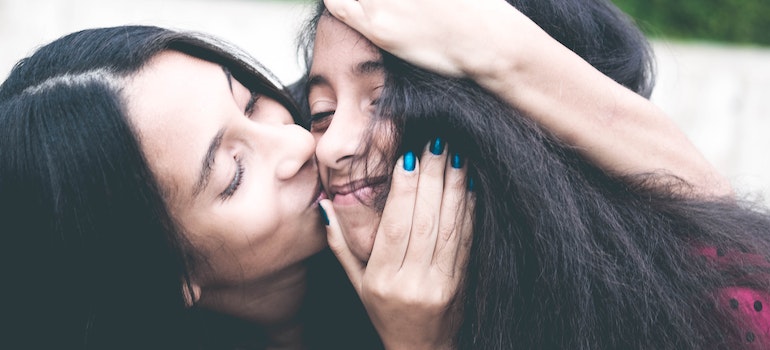
The truth is that sometimes, your family does contribute to your addiction. If that is the case, you should not lie. Instead, be honest about how you feel your parents have treated you, forgive them for their mistakes, and ask for forgiveness in return. It’s important to move past blaming each other and turn to healing. Try to spend more time with your parents in the future and talk to them more openly about things you might have considered taboo before. Implement a weekly family dinner, a monthly family meeting, or an annual family vacation. The odds are that your parents would want to have you more in their life anyway.
Working on your relationship with your children
Children of different ages will be affected differently by addiction in the family. Very young children may not even understand what is happening. Young children may internalize unhealthy beliefs about substances. Older children may feel neglected, hurt, or even resentful. All of these reactions are completely valid. So don’t try to change your children’s minds and hearts; acknowledge their feelings and work on healing from those feelings.
Most importantly, don’t lie to your kids at any age. They’ll know something is wrong. Instead, give age-appropriate but honest answers and explanations about your addiction. Strive to maintain such honesty throughout your recovery as well.
Repairing other familial relationships
You don’t have to invest the same effort into every familial relationship. Your closest family – your partner, children, parents, and siblings – should be the priority. When it comes to other family members, you can play it by ear. Reach out to those you care about most. Apologize if you’ve hurt them and explain how you’re feeling. Any questions you get, answer honestly to the degree you are comfortable. Most importantly, be more proactive within the family. Contact people more often, organize family gatherings, and participate in activities organized by others. Simply put: re-integrate yourself into the family.
Rebuilding friendships after addiction
Friends can be just as important as family, if not more. But remember that quality matters more than quantity when it comes to friendships. Invest your energy into those friendships that truly matter. Reach out to close friends and catch up with them on how your respective lives have changed. Make an effort to spend more time with your friends, going out for coffee, taking them out bowling, or just hanging out and watching Netflix. Quality time is a huge factor in rebuilding and maintaining friendships.
Forming new connections after addiction
Already in rehab, you’ll meet new people. Once you’re out of rehab, you may start a new job or move. It’s good to form new relationships like this because the environment is often a big contributor to addiction and changing who you spend time with can have a hugely positive impact. In your future relationships, you should strive for honest and healthy communication from the get-go. Use what you’ve learned from rebuilding relationships to also build new ones.
Remember to work on your relationship with yourself as well
When rebuilding and repairing relationships after addiction, it’s important not to forget one of the most important relationships you have: that with yourself. Addiction is bound to impact your self-image. You may feel guilt and shame about your actions, berate yourself for your choices, or even be disgusted with how substances have changed you. But negativity won’t lead to healing. Instead, you should forgive yourself. We all make mistakes; it’s how we make amends that matters. So do better where you can, but don’t be too hard on yourself. As long as you’re doing your best, you should be proud.